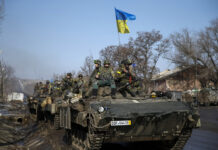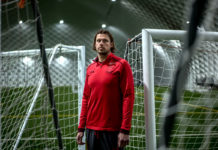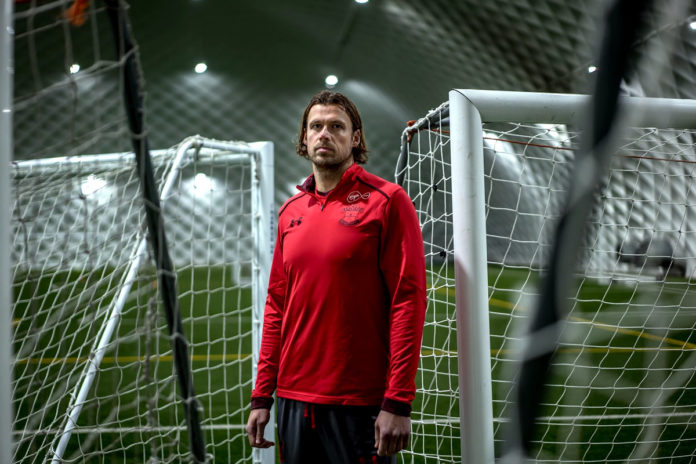Stuart Taylor cherishes those few moments before the game starts. Almost two decades since his professional debut, the sense of occasion still strikes him as special: the vibrant green of the field, the sight of the stadium starting to fill, the sound gathering, the anticipation mounting.
He soaks it all in as he warms up for 15 or 20 minutes with Southampton’s other goalkeepers, Fraser Forster and Alex McCarthy. Taylor stands on the sideline, swinging crosses in for one or the other to catch, or positions himself directly in front of them, peppering them with shots, gently tuning up their reflexes.
When they are ready, all three return to the dressing room. Forster, an England international, and McCarthy strip off their training gear, and prepare for the game.
But unless one has suffered a late injury, Taylor does the opposite.
He puts on his club tracksuit. He heads upstairs, and takes a seat in the stands. His work is over before the game starts. His job, from that point on, is simply to watch.
That is what Taylor has done for much — too much — of the last 18 years. Before Southampton, he played for Arsenal, Aston Villa and Manchester City, among others, and yet it feels like he has barely played at all: just 95 times in total; only 10 games since 2009 and not at all since 2015.
He looks back on his career with no little fondness — the players he has called teammates, the clubs he has called home — but substantially more frustration at the lot he was assigned. Taylor has spent his entire career marooned in soccer’s most unappreciated, unwelcome role: backup goalkeeper.
That, he knows, has earned him a reputation. “There is definitely a perception of me,” he said. He paints it, a little angrily, as that of a man who “loves going round clubs, earning money for doing nothing.” He is often told that he must “be a multimillionaire,” after so long in the Premier League.
It is not a description that he recognizes, on any number of levels. He laughs at the idea that, at 37, he will soon retire into a life of idle bliss. “I will have to work,” he said. “People assume I have made serious money. I really haven’t.”
He dismisses the notion that his job is a sinecure, that he “sits around doing nothing, turning up for training, having a jolly, messing about.”
What grates most, though, is the idea that this was all deliberate. This is not the career Taylor envisaged. He has done all he can to escape his unwanted pigeonhole. He remains “baffled,” he said, “frustrated” that he has been unable to do so. And he is not the only one.
“Every coach I have had, every goalkeeper I have worked with, has said I should have played 200 or 300 Premier League games,” Taylor said. “I look back at it and think the same.”
A Bright Start Falters
As a teenager, Taylor was earmarked for greatness: poached by Arsenal after a brief spell at Wimbledon, hot-housed with the rest of English soccer’s brightest young things at the now-defunct school of excellence at Lilleshall.
He represented England at under-16, under-18, under-20 and under-21 level, and seemed to have been earmarked as a possible long-term heir to Arsenal’s longtime goalkeeper, David Seaman, alongside Richard Wright, another young English prospect. In 2002, Arsenal won the Premier League title; all three played at least 10 times, ensuring each a winner’s medal.
His life on England’s south coast is not a glamorous one, and it is not an easy one, either. Taylor lives alone in an apartment in nearby Winchester; his wife and three children are back in Romford, a suburb east of London, a few hours northeast. He only signs one-year contracts now, and it is not worth tearing his sons and daughter away from home. He often finds himself alone in the gym when everyone else has gone home.
But the life is one he enjoys, one he has — unwittingly, unwillingly — trained for all these years. He is an excellent, expert backup goalkeeper: there is already talk that Southampton might offer him another year’s contract. Here, at least, he is appreciated.
It is dark by the time Taylor has finished speaking. The parking lot is almost empty. Even Alfie, the black cat who has taken up residence at the training ground, has gone. Taylor says goodbye, and then turns to his left, back through the door behind reception, back inside. This is his work. He is not yet ready to leave.



























